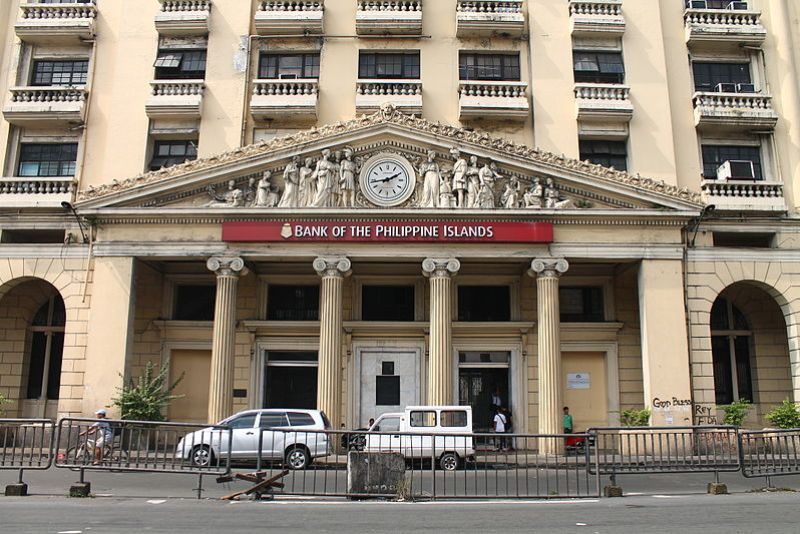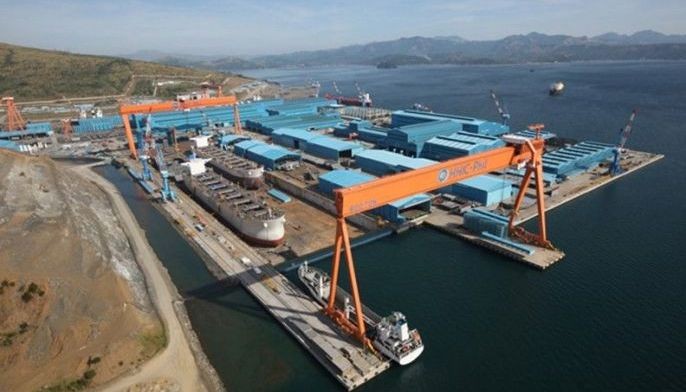Fitch unit: Hanjin bankruptcy unlikely to threaten Philippines’ financial stability

‘Worse days ahead for Philippine banks’
MANILA, Philippines — Local banks’ huge exposures to Hanjin Philippines — which recently declared bankruptcy after it defaulted on over $400 million in loans — are unlikely to shake the Philippines’ financial stability, a Fitch Group unit said Tuesday.
However, it warned that operating environment may become more challenging for banks over the coming quarters due to “slowing economic growth momentum” and tightening monetary conditions.
Hanjin Philippines last week filed for court rehabilitation proceedings as it struggles to pay $412 million in combined loans from five Philippine banks, in what could be the biggest corporate default in Philippine history. Most of the money was reportedly lent without collateral protection.
Hanjin reportedly owes $140 million to Rizal Commercial Banking Corp., $80 million to state-owned Land Bank of the Philippines, $72 million to Metropolitan Bank & Trust Co. and $60 million each to Bank of the Philippine Islands and BDO Unibank Inc.
In a research note, Fitch Solutions said the country’s banking system could weather the Hanjin default, citing little concentration risk as well as Philippine banks’ “healthy capital buffers” and low level of soured debts they held.
“The Philippine banking system as a whole boasts robust capital and liquidity buffers, while asset quality remains healthy, with the non-performing loans ratio well-below crisis levels,” Fitch Solutions said.
Hanjin Philippines was established in 2006 as a subsidiary of South Korean shipbuilder Hanjin Heavy Industries and Construction Co. Ltd. Since 2008, the company has delivered a total of 123 vessels to clients across the globe, putting the Philippines on the map as the world’s fifth largest shipbuilder.
According to media reports, the concerned banks have agreed that no one will unilaterally seize the shipbuilding giant’s assets to protect the country’s banking system and economy. The creditors are also reportedly considering talking to strategic investors.
“This should give the company some time to rehabilitate, and there has been precedent of lenders being able to recoup their losses after the period,” the Fitch unit said of the five banks’ collective action.
“Even if in the event that the consortium of Philippine banks call for the forced sale of the Hanjin shipyard to strategic investors, the value of the company’s assets is said to outstrip its loan liabilities,” it added.
Financial stability still intact
The Bangko Sentral ng Pilipinas earlier assured the public that the country’s banking industry remains strong as the bad exposure of big banks to the embattled Korean shipbuilder is “very negligible.”
Moody’s Investors Service on Tuesday warned that credit ratings of the five Philippine banks are in danger due to the exposures, as this could mean higher credit costs and reduction in profit for them.
Responding to Moody’s assessment, four of the five banks involved separately told the stock exchange on Tuesday that their respective businesses will remain on solid footing. LANDBANK — which is not listed on the stock exchange — reportedly said last Friday that “down the road, we hope to recover our exposure.”
‘Mildly erode’
In the same research note, Fitch Solutions said it expects “worse days ahead” for Philippine banks that could “mildly erode” the strength and financial buffers of local lenders across the board.
“We believe that the Philippine economy will struggle to reverse its waning growth momentum over the coming quarters owing to tighter monetary conditions, the potential for a re-escalation of global trade tensions, as well as a deteriorating business environment,” it said.
“Combined with rising interest rates both globally and domestically, as well as lower risk appetite, these factors will likely see investment slow over the coming quarters,” it added.
- Latest
- Trending































